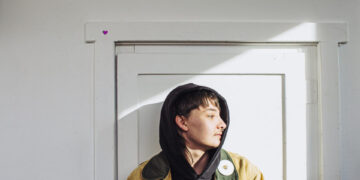When I was 19, I could be found illegally sneaking into nightclubs. As the youngest person in the room, I was essentially walking into a raucous Generation X party.
Back then, around 2003-2004, the height of the ’90s rave era had passed and the post-rave scene was acclimating into the then-emerging ultra-lounge wave. House music and techno reigned supreme in the underground, Red Bull and vodka covered everything, and Gen Xers lived by this credo to make the most of the weekend. At the time, this apparently meant binge drinking with friends to loud music for long periods of time—every weekend.
As time went on and the millennial flavor began to form, I remember how exciting it was when all the indie kids started dancing. Parties like Goo at Slowdown and Gunk at Waiting Room spawned a new infusion of creativity into nightlife. Along with Bar 415, Loom at España, and Nomad Lounge, it looked as though millennials were headed down the same work-hard, play-hard path as Gen X. That is until the Great Recession struck.
Along with 9/11, and later the technological advancement of social media, the recession of 2008 would become a defining feature of our generation, shaping the millennial psyche and influencing collective movements.
In the face of layoffs and widespread economic downturn, here in Omaha I witnessed early 20-somethings foregoing the cover charges and high drink prices of bars and clubs. Instead they grabbed a gas station six-pack and headed to the nearest midtown house party to aptly channel their youthful angst and economic anxiety through the jaw-grinding sounds of electro. That same year, PBR sales took off and Google searches for “electro music” peaked.
But the millennial taste began to evolve, and all of those sweaty basement experiences transmuted to the rise of micro-breweries, Netflix, and Instagramming your farmer’s market foodie experience as a way to say, “Hey, I didn’t waste away my Friday night like you all did, so now I’m eating this farm-to-table cucumber at 9 a.m.”
There’s an entire industry dedicated to studying generations to predict buying behaviors, and when you study the research, millennials tend to say terrible things about nightclubs. Complaints often touch on high cover charges, rude bouncers, long waits, overcrowding, and loud music—all things that didn’t seem torbother Gen X.
This notion—supplemented with social media, dating apps, and streaming music—meant that you didn’t really need to leave your house in order to feel connected to your friends, to what’s happening with cutting-edge music, or even to find a date. All compelling reasons to go out for generations before.
Because of these factors, I believe millennials developed a sense of economic conservatism as a response to the Great Recession. Because they didn’t have the expendable income like previous generations, they adapted by finding reasons why the commercial-party atmosphere of a club wasn’t worth it, perhaps merely as a means to justify their inability to participate. This was all, of course, reinforced by the needs technology filled in. But that doesn’t mean our generation doesn’t like a good party.
Yes, nightclubs have been closing in record numbers all across America and the United Kingdom. We are witness to this even in our own city. But festivals have been on the upswing. Think about the rise in awareness of Burning Man, Coachella expanding to two weekends, or even our own Maha festival, which sold out the last two years.
To put it another way, instead of going out every weekend—a routine Gen X had ritualized—millennials decide to save up for the big moments. And with social media and smart phones, they can capture the experience and #TBT-it over the course of many weeks and months as a way to make the moment, and their dollars, last.
All of this in mind, if someone were to ask me today if opening a nightclub was a good idea, I’d tell them, “No.” Throw a festival instead. One that offers coffee with amazing floral and acidic notes, and a fast-casual gastro pub that offers a saffron, foie gras, and grass-fed beef burger.
Now, Generation Z is beginning to pump out its first 21+ers. As they enter into the nightlife picture amidst the Trumpian era, it’ll be interesting to see how they respond to present circumstances. Will the pervasive fear, racial tension, and stagnant wages turn our youth inward, or will they tap into the collective anxiety of our times as a source of inspiration to compel the use of art, music, and dancing as a means to escape, to find solutions, and propel our society forward, like generations have done before?
I sure hope so.
To share your life perspectives—or whatever—with Brent Crampton and Encounter, email [email protected].














